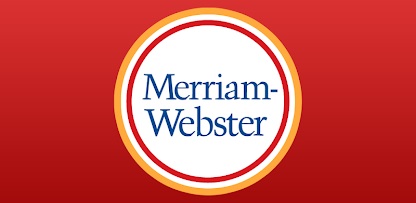Introduction to Merriam-Webster: Merriam Webster
Founded in 1831, Merriam-Webster has established itself as one of the most reputable sources for English language dictionaries, thesauruses, and linguistic reference materials. With its origins deeply rooted in American history, the Merriam-Webster brand has come to symbolize accuracy, reliability, and relevance in the ever-evolving world of language. Over the decades, it has adapted to changes in language and technology, making it one of the most widely consulted resources for students, writers, educators, and language enthusiasts around the globe.
Table of Contents
The Legacy of Merriam-Webster
The story of Merriam-Webster began with George and Charles Merriam, who founded the company that would soon partner with Noah Webster, a pioneer in American lexicography. Their partnership brought the first truly American dictionary, which has continued to evolve over the years to reflect the linguistic, cultural, and technological changes of each generation.
Merriam-Webster: A History of Language Excellence
Noah Webster’s Influence on American English
Noah Webster, often referred to as the “Father of American Scholarship and Education,” was determined to create an American standard for the English language, differentiating it from British English. His 1828 dictionary, An American Dictionary of the English Language, was groundbreaking in this respect. With unique spellings and definitions, it captured the American spirit of independence and innovation.
The Merriam Partnership
After Webster’s death in 1843, the Merriam brothers acquired the rights to his dictionary. They continued to update and expand the work, incorporating Webster’s vision while adding their own refinements. This partnership solidified Merriam-Webster as the gold standard for American English dictionaries, as the brand focused on accuracy, innovation, and accessibility.
The Role of Merriam-Webster in Modern English
Daily Word Insights and Language Learning Tools
Merriam-Webster’s “Word of the Day” is one of the most popular features, introducing new vocabulary daily with meanings, origins, and examples. This initiative helps readers expand their vocabulary and keeps the audience engaged. Additional resources, like quizzes and thesauruses, make learning vocabulary interactive and enjoyable.
Word of the Day: Building a Global Vocabulary
The Word of the Day feature is a favorite among language enthusiasts. Each day, a new word is chosen and explained in detail, often with pronunciation, usage examples, and origins. This feature alone has helped millions enhance their vocabulary over time.
Definitions That Evolve with Society
Language is constantly changing, and Merriam-Webster ensures its dictionaries remain up-to-date with modern vocabulary. Every year, new words are added, and definitions are revised to reflect shifts in meaning, culture, and technology. This commitment makes Merriam-Webster a trusted source for modern and accurate definitions.
Inclusion of New Words and Phrases
For instance, terms like “selfie,” “emoji,” and “binge-watch” were added as they became mainstream. Merriam-Webster keeps pace with language trends, capturing the ever-shifting nature of English while respecting traditional language structures.
Features of Merriam-Webster’s Online Presence
The Merriam-Webster Website and App
Merriam-Webster’s digital platforms provide quick access to definitions, synonyms, and language resources. With an intuitive layout, users can easily search for words and access learning tools, games, and quizzes designed to enhance language skills. Available as an app and website, these tools provide convenient language assistance anywhere, anytime.
Enhanced Dictionary and Thesaurus Tools
The online dictionary and thesaurus tools provide more than just definitions—they offer pronunciation guides, word usage examples, and historical context. This makes Merriam-Webster not only a dictionary but also a comprehensive language guide.
Interactive Language Games and Quizzes
For those looking to challenge themselves or learn in a fun way, Merriam-Webster’s site features numerous games and quizzes. From vocabulary challenges to grammar quizzes, these tools engage users in learning while making the process enjoyable. Examples include “Name That Thing,” “True or False,” and “How Strong is Your Vocabulary?”
Benefits of Learning Through Games
Learning through games encourages memory retention and keeps users motivated. Merriam-Webster has harnessed the power of interactive learning, making vocabulary-building accessible to users of all ages.
How Merriam-Webster Remains Relevant
Embracing Social Media and Pop Culture
Merriam-Webster has embraced social media, engaging with audiences on platforms like Twitter, Instagram, and Facebook. Known for witty and insightful posts, the brand discusses trending words, language debates, and clarifies common grammar and usage mistakes. This approach keeps Merriam-Webster relevant and relatable, attracting a younger audience.
Memorable Social Media Moments
For example, during major events or cultural shifts, Merriam-Webster often shares definitions of words relevant to current events. This not only provides linguistic context but also offers a humorous or insightful take on the world.
Addressing Common Misconceptions
Through both social media and blog posts, Merriam-Webster addresses common language questions and myths, such as the difference between “affect” and “effect” or “complement” versus “compliment.” By clarifying these, Merriam-Webster helps demystify confusing aspects of English grammar and usage.
The Merriam-Webster Dictionary for Education and Academia
Widely Used in Schools and Universities
Merriam-Webster dictionaries are frequently used in educational settings, from elementary schools to universities. Its dictionaries, both physical and digital, are used as standard reference materials, ensuring that students have access to accurate and authoritative information on English vocabulary.
Tools for Students and Educators
With resources tailored for students, including printable worksheets, vocabulary lists, and grammar guides, Merriam-Webster supports educators in fostering a strong foundation in language. Additionally, educational institutions often recommend Merriam-Webster as the go-to reference for students conducting research and assignments.
Specialized Dictionaries and Resources
In addition to its standard dictionaries, Merriam-Webster offers specialized versions tailored to specific fields, such as medical dictionaries for healthcare professionals and legal dictionaries for law students. These specialized resources provide technical definitions, contextual information, and precise terminology necessary for academic and professional success.
How Merriam-Webster Adapts to Technological Change
Advancements in Search Technology
Merriam-Webster has optimized its digital platforms for modern search technology. The website and app are designed to understand natural language queries, meaning users can search for complex phrases or ask questions, and the dictionary will provide relevant answers. This advanced search functionality sets Merriam-Webster apart in the digital age.
AI and Machine Learning Integration
Merriam-Webster employs AI to analyze and predict popular search queries, ensuring that users find the answers they’re looking for quickly. Machine learning also helps in recommending words and resources to users based on their past searches and interests.
Voice Search Capabilities
In addition to traditional text-based search, Merriam-Webster’s app supports voice search, enabling users to find definitions hands-free. This is especially useful for individuals who are on the go or prefer to speak their queries.
Merriam-Webster’s Thesaurus: Synonyms and More
A Comprehensive Thesaurus for Writers and Professionals
Merriam-Webster’s thesaurus is an invaluable tool for anyone looking to enhance their writing. From finding synonyms and antonyms to expanding vocabulary, the thesaurus provides varied language options suited for different tones, contexts, and levels of formality.
Word Choice and Nuance
The thesaurus not only lists synonyms but also provides insights into the subtle differences between words. This nuance helps users choose the most appropriate word for their context, a crucial skill for writers and professionals aiming for clarity and precision.
Merriam-Webster for Language Learners
Tools for ESL (English as a Second Language) Learners
For those learning English as a second language, Merriam-Webster offers a range of resources that simplify vocabulary and grammar. Definitions are clear, concise, and accompanied by examples, making the learning process accessible and engaging for non-native speakers.
Pronunciation Guides and Example Sentences
With phonetic spellings and audio pronunciations, ESL learners can improve their speaking skills. Additionally, example sentences provide context for new vocabulary, aiding in comprehension and usage.
Mobile App Features for Learners
The Merriam-Webster app is particularly useful for ESL learners, featuring a simple layout and tools like flashcards, vocabulary quizzes, and personalized learning. These features support language acquisition and retention, essential for ESL students.
Conclusion
Merriam-Webster has grown from a trusted print dictionary to a multimedia language resource that serves a global audience. By embracing modern technology and societal changes, Merriam-Webster continues to be a vital tool for language learners, students, and professionals. Its commitment to linguistic accuracy, cultural relevance, and innovative learning tools has solidified its position as one of the most respected names in English language references. Whether you are a student, a professional writer, or just someone passionate about words, Merriam-Webster offers a wealth of resources that make language exploration both educational and enjoyable.


